Model Context Protocol (MCP) finally gives AI models a way to access the business data needed to make them really useful at work. CData MCP Servers have the depth and performance to make sure AI has access to all of the answers.
Try them now for free →Integrate Salesforce Data Cloud Data in Pentaho Data Integration
Build ETL pipelines based on Salesforce Data Cloud data in the Pentaho Data Integration tool.
The CData JDBC Driver for Salesforce Data Cloud enables access to live data from data pipelines. Pentaho Data Integration is an Extraction, Transformation, and Loading (ETL) engine that data, cleanses the data, and stores data using a uniform format that is accessible.This article shows how to connect to Salesforce Data Cloud data as a JDBC data source and build jobs and transformations based on Salesforce Data Cloud data in Pentaho Data Integration.
Configure to Salesforce Data Cloud Connectivity
Salesforce Data Cloud supports authentication via the OAuth standard.
OAuth
Set AuthScheme to OAuth.
Desktop Applications
CData provides an embedded OAuth application that simplifies authentication at the desktop.
You can also authenticate from the desktop via a custom OAuth application, which you configure and register at the Salesforce Data Cloud console. For further information, see Creating a Custom OAuth App in the Help documentation.
Before you connect, set these properties:
- InitiateOAuth: GETANDREFRESH. You can use InitiateOAuth to avoid repeating the OAuth exchange and manually setting the OAuthAccessToken.
- OAuthClientId (custom applications only): The Client ID assigned when you registered your custom OAuth application.
- OAuthClientSecret (custom applications only): The Client Secret assigned when you registered your custom OAuth application.
When you connect, the driver opens Salesforce Data Cloud's OAuth endpoint in your default browser. Log in and grant permissions to the application.
The driver then completes the OAuth process as follows:
- Extracts the access token from the callback URL.
- Obtains a new access token when the old one expires.
- Saves OAuth values in OAuthSettingsLocation so that they persist across connections.
- Click "General"
- Set Connection name (e.g. Salesforce Data Cloud Connection)
- Set Connection type to "Generic database"
- Set Access to "Native (JDBC)"
- Set Custom connection URL to your Salesforce Data Cloud connection string (e.g.
jdbc:salesforcedatacloud:InitiateOAuth=GETANDREFRESH - Set Custom driver class name to "cdata.jdbc.salesforcedatacloud.SalesforceDataCloudDriver"
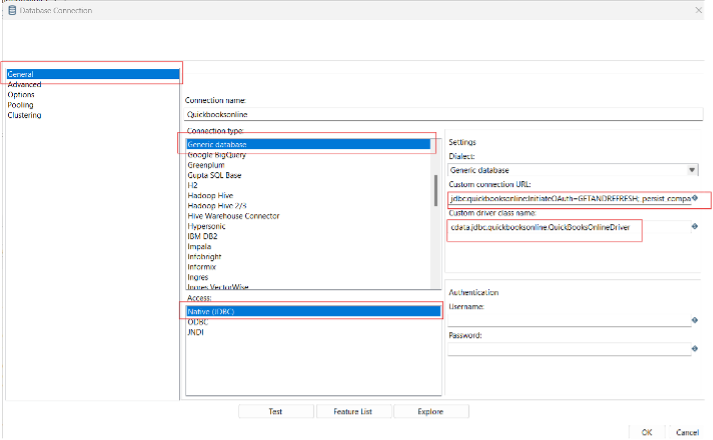
- Test the connection and click "OK" to save.
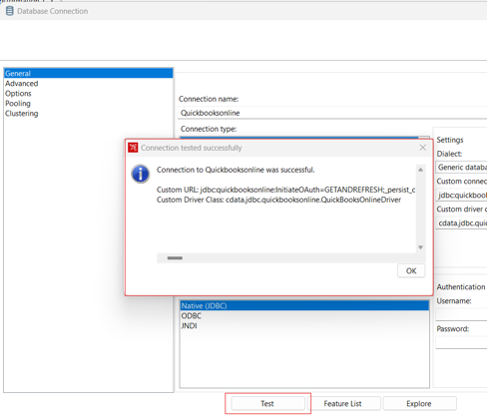
- Click "File" >> "New" >> "Transformation/job"
- Drag a "Table input" object into the workflow panel and select your Salesforce Data Cloud connection.
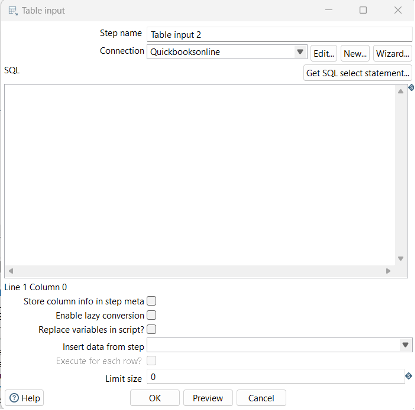
- Click "Get SQL select statement" and use the Database Explorer to view the available tables and views.
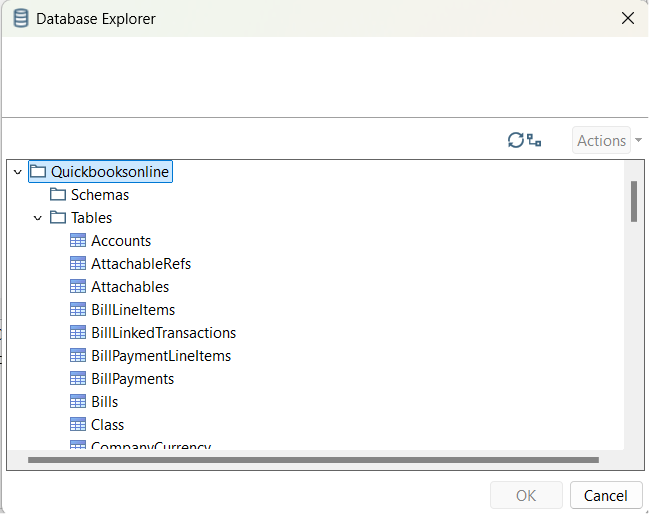
- Select a table and optionally preview the data for verification.
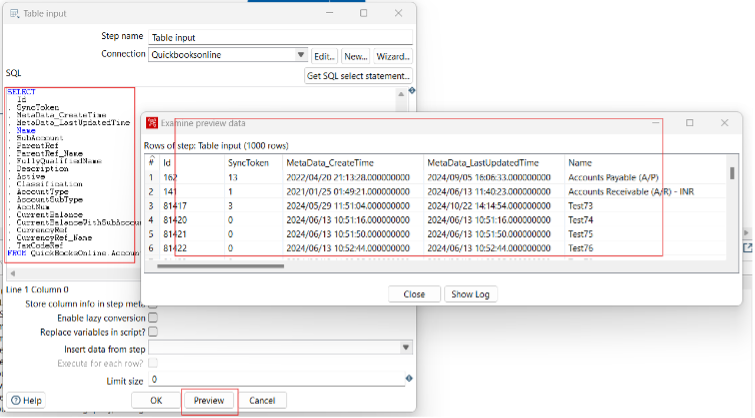
For other OAuth methods, including Web Applications and Headless Machines, refer to the Help documentation.
Built-in Connection String Designer
For assistance in constructing the JDBC URL, use the connection string designer built into the Salesforce Data Cloud JDBC Driver. Either double-click the JAR file or execute the jar file from the command-line.
java -jar cdata.jdbc.salesforcedatacloud.jar
Fill in the connection properties and copy the connection string to the clipboard.

When you configure the JDBC URL, you may also want to set the Max Rows connection property. This will limit the number of rows returned, which is especially helpful for improving performance when designing reports and visualizations.
Below is a typical JDBC URL:
jdbc:salesforcedatacloud:InitiateOAuth=GETANDREFRESH
Save your connection string for use in Pentaho Data Integration.
Connect to Salesforce Data Cloud from Pentaho DI
Open Pentaho Data Integration and select "Database Connection" to configure a connection to the CData JDBC Driver for Salesforce Data Cloud
Create a Data Pipeline for Salesforce Data Cloud
Once the connection to Salesforce Data Cloud is configured using the CData JDBC Driver, you are ready to create a new transformation or job.
At this point, you can continue your transformation or jb by selecting a suitable destination and adding any transformations to modify, filter, or otherwise alter the data during replication.
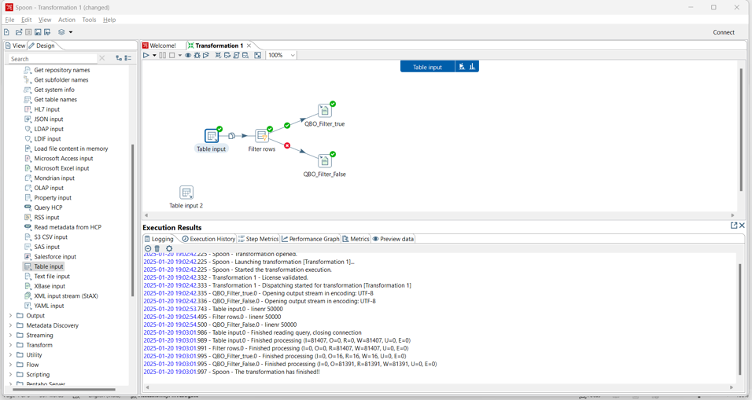
Free Trial & More Information
Download a free, 30-day trial of the CData JDBC Driver for Salesforce Data Cloud and start working with your live Salesforce Data Cloud data in Pentaho Data Integration today.

